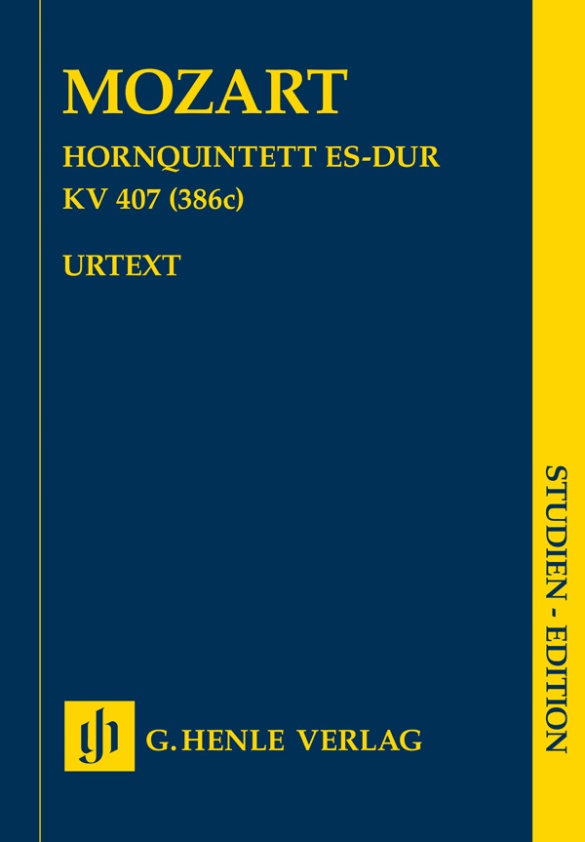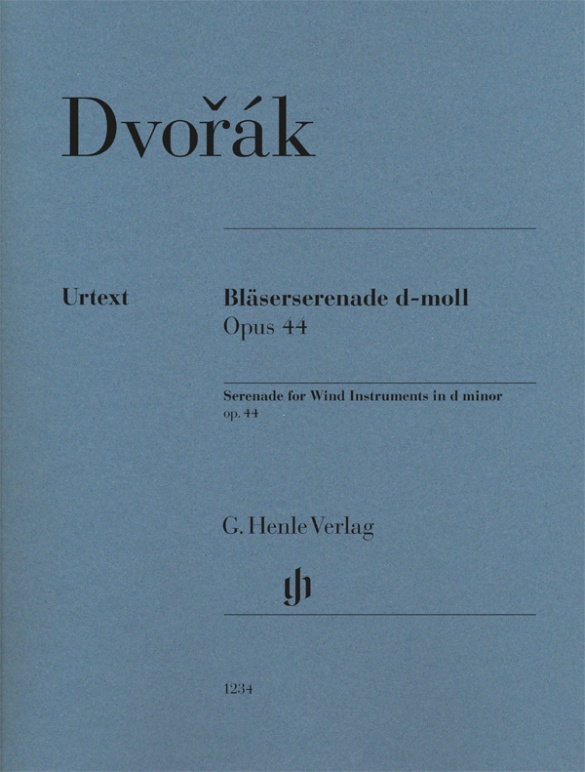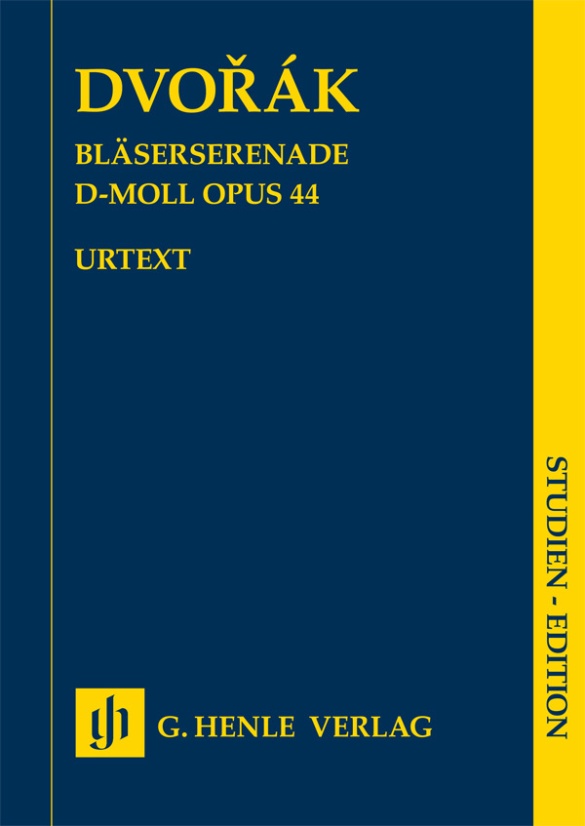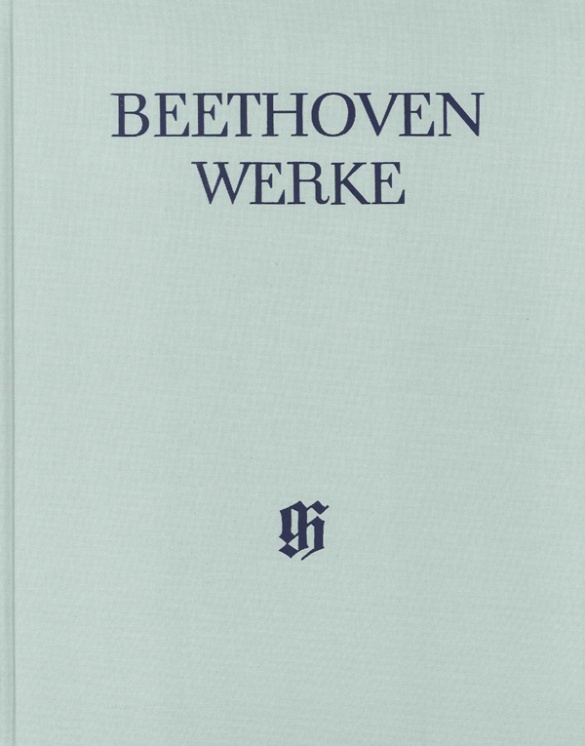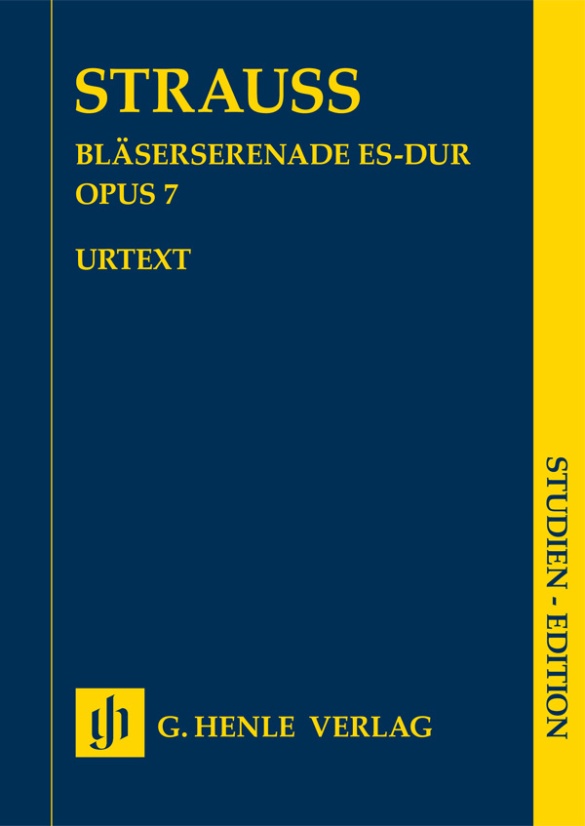

Richard Strauss
Sérénade à vent en Mi bémol majeur op. 7
La très romantique sérénade pour instruments à vent en un mouvement op. 7 a été composée par un Richard Strauss alors tout juste âgé de 18 ans. Cette œuvre aujourd’hui encore extrêmement appréciée des instrumentistes à vent rappelle, dans son effectif comme dans sa structure, la «Gran Partita» de Mozart, que Strauss prit certainement en exemple. La Sérénade ne fut pas exécutée dans sa patrie bavaroise, mais créée à Dresde en 1882 sous la direction de Franz Wüllner, chef d’orchestre alors très estimé qui avait également tenu Rheingold (L’Or du Rhin) et la Walküre (La Walkyrie) de Richard Wagner sur les fonts baptismaux, puis, plus tard, avait créé les poèmes symphoniques de Strauss Till Eulenspiegel (Till l’Espiègle) et Don Quixote (Don Quichotte). Un grand honneur donc pour le jeune Bavarois! L’éditeur Norbert Gertsch présente ici ce petit chef-d’œuvre, pour la première fois en qualité d’Urtext, ce pour quoi, outre la première édition, le manuscrit autographe fit également l’objet d’un difficile examen.
CONTENU/DÉTAILS
CONCERNANT LE COMPOSITEUR
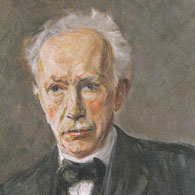
Richard Strauss
L’un des compositeurs d’opéras les plus importants du XXe s. Son œuvre comprend 15 opéras, 9 poèmes symphoniques, des concertos pour divers instruments et un grand nombre de lieder. Ses œuvres pour la scène abritent une grande diversité de genres et de sujets.
| 1864 | Né le 11 juin à Munich, fils de Franz Joseph Strauss, premier cor à l’orchestre de la cour. Leçons de piano, de violon et de composition. |
| 1885–86 | Directeur de l’orchestre de la cour de Meinigen, tout d’abord sous l’autorité de Bülow. |
| 1886 | Directeur musical au théâtre de la cour de Munich. |
| 1887–1903 | Il se consacre avant tout au genre du poème symphonique: entre autres «Mort et transfiguration» en Ut mineur op. 24, «Till l’Espiègle» en Fa majeur op. 28, «Ainsi parlait Zarathoustra» op. 30, «Symphonie domestique pour grand orchestre» en Fa majeur op. 53. |
| 1889–94 | Chef d’orchestre à Weimar. 1894 premier chef d’orchestre à Munich, 1898-1910 à l’opéra de la cour de Berlin. |
| 1905 | Percée avec la création de «Salomé» op. 54. |
| 1906 | Début de la collaboration avec Hugo von Hofmannsthal autour de l’opéra «Elektra» op. 58 aux harmonies très évoluées dont la création eut lieu en 1909 à Dresde. |
| 1911 | Création à Dresde, avec un fantastique succès, du «Chevalier à la rose» op. 59, renvoyant à diverses traditions et qui fait de lui le compositeur d’opéras allemand le plus important. Il décide de se consacrer avant tout à l’opéra: «Ariane à Naxos» op. 60 (1912), «Intermezzo» op. 72 (1924), «Die Ägyptische Helena» op. 75 (1928), «Arabella» op. 79 (1933), «La Femme silencieuse» op. 80 (1935), «Friedenstag» op. 81 et «Daphné» op. 82 (1938), «L’Amour de Danaé» op. 83 (1944). |
| 1919 | Direction de l’opéra de Vienne. Création à Vienne de la «Femme sans ombre» op. 65. |
| 1931 | Collaboration avec Stefan Zweig. |
| à partir de 1944 | Ses dernières œuvres: «Métamorphoses» pour 23 instruments à cordes solistes, Concerto pour hautbois en Ré majeur. Les Quatre derniers lieder. |
| 1949 | Meurt le 8 septembre à Garmisch-Partenkirchen. |
About the Authors

Norbert Gertsch (Editeur)
Dr. Norbert Gertsch, born in 1967 in Rheinkamp/Moers, studied piano solo at the Mozarteum in Salzburg and read musicology and philosophy at the Paris Lodron University in Salzburg and the Ruperto Carola University Heidelberg on a scholarship from the “Studienstiftung des Deutschen Volkes”. In 1996 he wrote his doctoral thesis on Ludwig van Beethoven’s Missa solemnis (as part of the New Complete Edition) under Ludwig Finscher.
In the following year, he began to work at G. Henle Publishers, initially as an editor for electronic publishing. After working on a two-year project (1999–2000) sponsored by the German Research Foundation (DFG) preparing a new Beethoven Catalogue of Works, he became a scholarly editor at G. Henle Publishers. In 2003 he became Editor-in-Chief, in 2009 Deputy Managing Director and Head of Publishing. As of 1 January 2024, the Executive Board of the Günter Henle Foundation has appointed Dr. Norbert Gertsch, as the new managing director, succeeding Dr. Wolf-Dieter Seiffert.
Gertsch has published many Urtext editions for G. Henle Publishers, including volumes for a new edition of Beethoven’s Piano Sonatas together with Murray Perahia.
Informations sur la sécurité du produit

G. Henle Verlag
Vous trouverez ici des informations sur le fabricant du produit.G. Henle Verlag e.K.
Forstenrieder Allee 122
81476 München
Allemagne
info@henle.de
www.henle.com
recommandations
autogenerated_cross_selling
Autres éditions de ce titre
Autres éditions de ce titre


